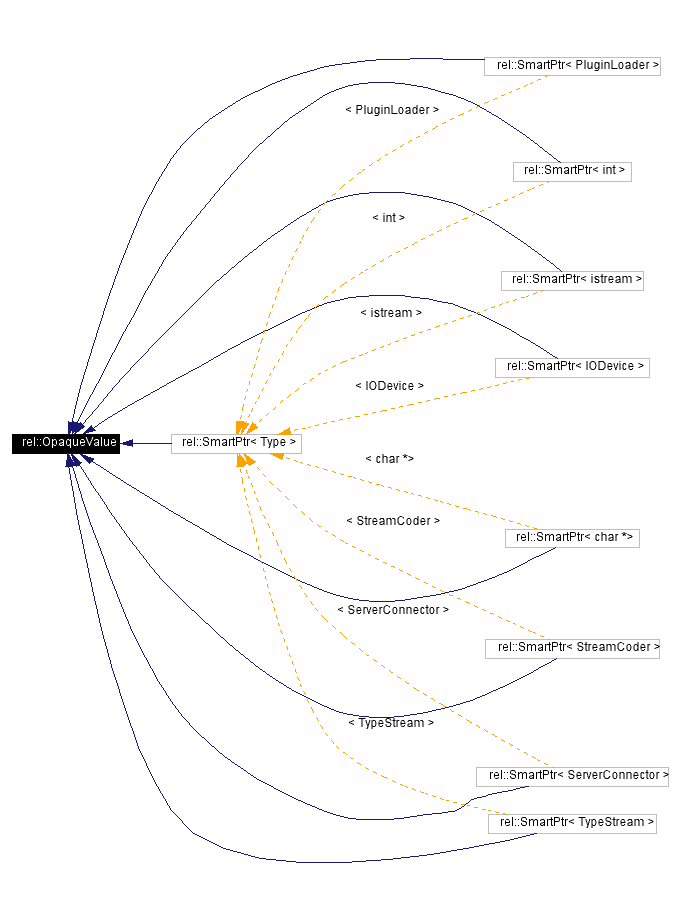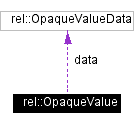Main Page Class Hierarchy Compound List File List Compound Members Related Pages
rel::OpaqueValue Class Reference
#include <SmartPtr.h>
Inheritance diagram for rel::OpaqueValue:
 [legend]Collaboration diagram for rel::OpaqueValue:
[legend]Collaboration diagram for rel::OpaqueValue: [legend]List of all members.
[legend]List of all members.
Public Types |
| enum | DestructorFlag { No_Destructor
} |
Public Methods |
|
| OpaqueValue () |
|
| OpaqueValue (const OpaqueValue &value) |
|
| OpaqueValue (OpaqueValueData *value) |
|
| ~OpaqueValue () |
|
const std::type_info & | type () const |
|
bool | interpret (const std::type_info &attemptedResultType, const OpaqueValue *args, OpaqueValue *output) |
|
OpaqueValue & | operator= (const OpaqueValue &src) |
|
void * | get () const |
|
bool | checkType (const std::type_info &dst) |
|
void | assertType (const std::type_info &dst) |
|
void | assertNotNull (const void *value) const |
|
void | reset (OpaqueValueData *value=NULL) |
Detailed Description
Wrapper around a smart pointer. This can hold any type of object, along with a symbolic type id string which is used internally for error checking.
Due to the type checking string, an OpaqueValue can only be cast to the same type it was stored as. For example, if class B is derived from class A, and an instance of type B is stored, it can not be pulled out as type A.
In order to be able to hold arbitrary type data, this also holds additional data about an object, such as the destruction function.
All of this extra information is transparent to the user. For instance, if we knew a type "int" was stored in a map, we could look it up as follows:
SmartPtr<int> result = GlobalObjectMap()->find(Path("..."));
The find operation always returns OpaqueData, which can be automatically cast to SmartPtr<Type> - which does type checking along the way. Attempting to cast to the wrong type will lead to an exception. See SmartPtr<> for details.
The documentation for this class was generated from the following files:
Generated at Sat Sep 22 02:20:02 2001 for librel by
 1.2.10 written by Dimitri van Heesch,
© 1997-2001
1.2.10 written by Dimitri van Heesch,
© 1997-2001



 1.2.10 written by Dimitri van Heesch,
© 1997-2001
1.2.10 written by Dimitri van Heesch,
© 1997-2001